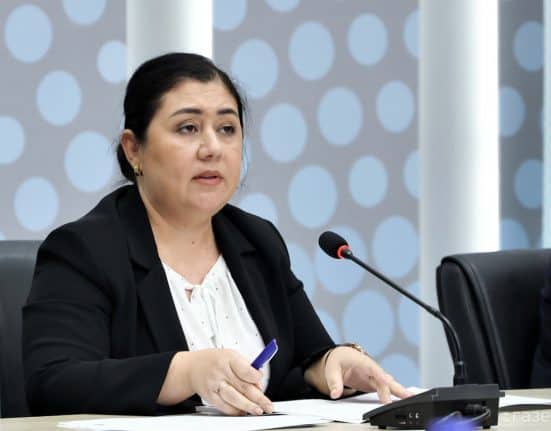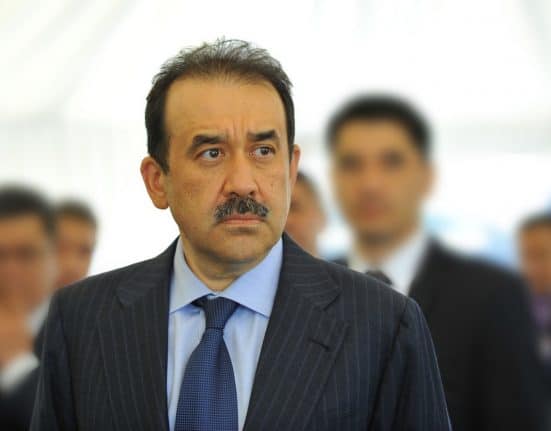The presidential administration has published a draft of a new law “On non-profit non-governmental organizations”. The document envisages tightening control over non-governmental organizations already created and being created in the republic.
“The ongoing large-scale reforms in the socio-economic sphere and the improvement of democracy in the Kyrgyz Republic are accompanied by an increase in the political and social activity of citizens and the expansion of forms of expression of individual, collective and mass opinions of people on certain issues of state and public life of the country. The realization of the right of citizens to public associations in order to achieve social, charitable, cultural, political and other non-material needs of citizens, in the long run, is a phenomenon useful for society, because it obliges the state power to take into account in its activities the mood and ideology of the various social strata which they represent”, was stated in the reference to the bill.
The initiators believe that against this background, the political and legal requirements for the formation and operation of NGOs in the republic are multiplied.
“This is an objective necessity. Since the adoption of the current law “On non-profit organizations” in 1999, several thousand non-profit non-governmental organizations have been established in the country (according to information from various sources, including dozens of branches and representative offices of foreign non-governmental organizations operating in the country). Moreover, it’s impossible to find out their exact number, because, in accordance with the requirements of the current law, state registration of non-profit organizations is optional,” the authors of the bill say.
In this regard, they explain, there is a need to develop and adopt a legislative act regulating public relations arising in connection with the exercise by citizens of the right to association, fixing the features of the creation, operation, reorganization and liquidation of non-profit non-governmental organizations, taking into account the interests of the state and ensuring public security, protection of morality, public health, national and religious feelings of citizens.
“The document was developed in order to ensure openness and publicity of the activities of non-profit organizations, including structural divisions of foreign non-profit organizations,” the justification note says.
The draft law proposes to consolidate the provisions that give the state control over the creation of non-profit non-governmental organizations: a non-governmental organization, including branches and representative offices of a foreign NGO, is subject to mandatory state registration with the Ministry of Justice, and a refusal to register can be appealed in court.
The Prosecutor General’s Office will control and supervise the compliance of the NGO’s activities with the goals provided for by its founding documents and the country’s legislation.
If this document is adopted, then the state bodies will have the right:
- to request from the operating bodies of NGOs their administrative documents;
- to request and receive information about the financial and economic activities of NGOs from the state statistics authorities, tax authorities, and other state supervision and control authorities, as well as from credit and other financial organizations;
- to send their representatives to participate in the activities carried out by NGOs;
- to conduct checks on the compliance of the activities of the NGO, including the expenditure of funds and the use of other property, with the goals provided for by its constituent documents, in the manner established by the authorized body.
In case of detection of violations, the Prosecutor General’s Office will have the right to issue a warning about the elimination and the term for its elimination.
The authors of the draft law indicate that it pays great attention to the issues of ensuring transparency in the financing of NGOs: sources of funding are specified; provision is made for ensuring the availability of information on funding to members of the organization, the public and competent state bodies; targeted use of financial resources; annual financial statements are introduced.
At the same time, it’s planned to introduce economic support for non-governmental organizations by the state authorities and the Union of local authorities of the Kyrgyz Republic.
The forms of providing such support are as follows:
- provision, in accordance with the legislation of the Kyrgyz Republic, with tax, customs and other tax benefits for NGOs established for charitable, educational, cultural and scientific purposes;
- provision of benefits for exemption (full or partial) from fees for the use of state and municipal property; placing orders among NGOs for the supply of goods, performance of work, provision of services for state and municipal needs;
- granting, in accordance with the law, tax benefits to citizens and legal entities that provide material support to non-governmental organizations working in the social sphere.






